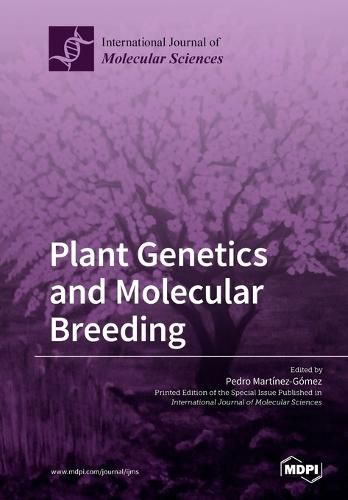Readings Newsletter
Become a Readings Member to make your shopping experience even easier.
Sign in or sign up for free!
You’re not far away from qualifying for FREE standard shipping within Australia
You’ve qualified for FREE standard shipping within Australia
The cart is loading…






This title is printed to order. This book may have been self-published. If so, we cannot guarantee the quality of the content. In the main most books will have gone through the editing process however some may not. We therefore suggest that you be aware of this before ordering this book. If in doubt check either the author or publisher’s details as we are unable to accept any returns unless they are faulty. Please contact us if you have any questions.
The development of new plant varieties is a long and tedious process involving the generation of large seedling populations for the selection of the best individuals. While the ability of breeders to generate large populations is almost unlimited, the selection of these seedlings is the main factor limiting the generation of new cultivars. Molecular studies for the development of marker-assisted selection (MAS) strategies are particularly useful when the evaluation of the character is expensive, time-consuming, or with long juvenile periods. The papers published in the Special Issue Plant Genetics and Molecular Breeding report highly novel results and testable new models for the integrative analysis of genetic (phenotyping and transmission of agronomic characters), physiology (flowering, ripening, organ development), genomic (DNA regions responsible for the different agronomic characters), transcriptomic (gene expression analysis of the characters), proteomic (proteins and enzymes involved in the expression of the characters), metabolomic (secondary metabolites), and epigenetic (DNA methylation and histone modifications) approaches for the development of new MAS strategies. These molecular approaches together with an increasingly accurate phenotyping will facilitate the breeding of new climate-resilient varieties resistant to abiotic and biotic stress, with suitable productivity and quality, to extend the adaptation and viability of the current varieties.
$9.00 standard shipping within Australia
FREE standard shipping within Australia for orders over $100.00
Express & International shipping calculated at checkout
This title is printed to order. This book may have been self-published. If so, we cannot guarantee the quality of the content. In the main most books will have gone through the editing process however some may not. We therefore suggest that you be aware of this before ordering this book. If in doubt check either the author or publisher’s details as we are unable to accept any returns unless they are faulty. Please contact us if you have any questions.
The development of new plant varieties is a long and tedious process involving the generation of large seedling populations for the selection of the best individuals. While the ability of breeders to generate large populations is almost unlimited, the selection of these seedlings is the main factor limiting the generation of new cultivars. Molecular studies for the development of marker-assisted selection (MAS) strategies are particularly useful when the evaluation of the character is expensive, time-consuming, or with long juvenile periods. The papers published in the Special Issue Plant Genetics and Molecular Breeding report highly novel results and testable new models for the integrative analysis of genetic (phenotyping and transmission of agronomic characters), physiology (flowering, ripening, organ development), genomic (DNA regions responsible for the different agronomic characters), transcriptomic (gene expression analysis of the characters), proteomic (proteins and enzymes involved in the expression of the characters), metabolomic (secondary metabolites), and epigenetic (DNA methylation and histone modifications) approaches for the development of new MAS strategies. These molecular approaches together with an increasingly accurate phenotyping will facilitate the breeding of new climate-resilient varieties resistant to abiotic and biotic stress, with suitable productivity and quality, to extend the adaptation and viability of the current varieties.